Using HydroPrime Glycerol to Enhance Athletic Performance
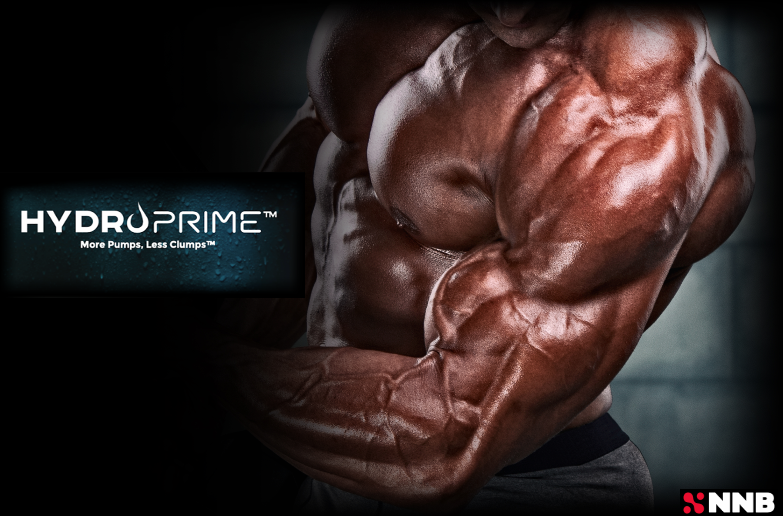
If you’ve ever used a pre-workout pump product, you may have already heard of this ingredient. Glycerol has a long-standing use in the supplement industry because of its unique action in the body. It’s ultimately responsible for that enhanced “pump” or “swole” feeling you get when supplementing with this ingredient.
It has historically been used to treat certain conditions related to hydration or rehydration and more recently has been shown to have positive outcomes on exercise endurance performance. Although many supplement companies took a step back from formulating with this ingredient, thanks to advances in chemical engineering, it’s back and it’s better than ever before. Here’s a rundown on glycerol, its benefits and how to use it for maximum athletic performance.
What Is Glycerol?
 Glycerol is a sugar alcohol made up of three carbon molecules. It’s found naturally in the body and is produced from glucose, proteins, pyruvate, triacylglycerols and via other glycerolipid metabolic pathways.1 One of the more common places you’ll find glycerol is as the backbone of glycerides, such as medium-chain triglycerides (MCTs). It’s also an ingredient used widely in the supplement, pharmaceutical and food industries for its chemical composition but also as an additive and sweetener. You will often see this listed as “glycerine” in many protein bars, which is simply a commercial name for glycerol. Glycerol is a colourless, non-toxic, odourless and sweet-tasting viscous liquid (it can also come in a powder form, but we’ll discuss this later). The structure of glycerol allows it to be miscible in water, which means it mixes in all proportions equally. It’s also hygroscopic, which means it attracts and absorbs water from its environment.
Glycerol is a sugar alcohol made up of three carbon molecules. It’s found naturally in the body and is produced from glucose, proteins, pyruvate, triacylglycerols and via other glycerolipid metabolic pathways.1 One of the more common places you’ll find glycerol is as the backbone of glycerides, such as medium-chain triglycerides (MCTs). It’s also an ingredient used widely in the supplement, pharmaceutical and food industries for its chemical composition but also as an additive and sweetener. You will often see this listed as “glycerine” in many protein bars, which is simply a commercial name for glycerol. Glycerol is a colourless, non-toxic, odourless and sweet-tasting viscous liquid (it can also come in a powder form, but we’ll discuss this later). The structure of glycerol allows it to be miscible in water, which means it mixes in all proportions equally. It’s also hygroscopic, which means it attracts and absorbs water from its environment.
What Happens with Glycerol in the Body?
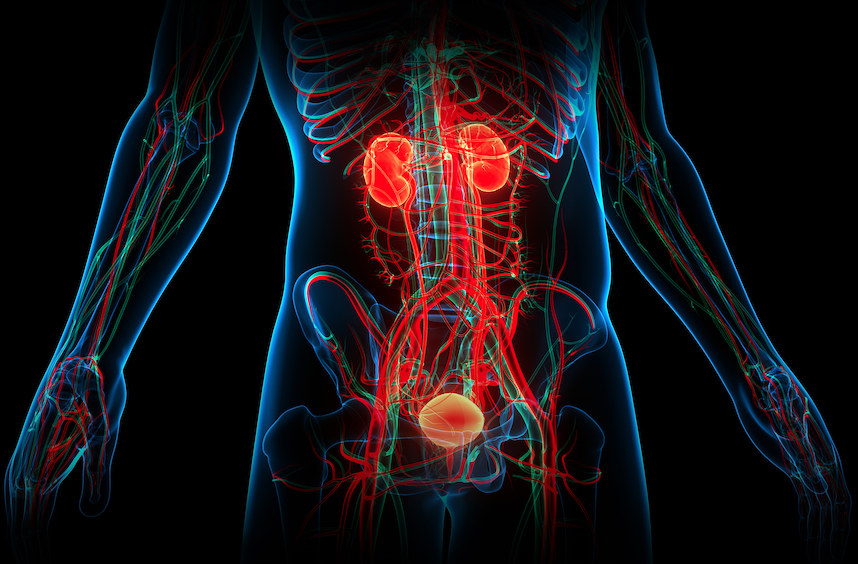 When glycerol is consumed, it’s rapidly absorbed and distributed between body fluid compartments before it is slowly metabolized via the liver and kidneys. Consumption of glycerol with substantial liquid or water causes an increase in the kidney’s medullary concentration gradient, enhancing absorption in the nephron.2 The nephron is the unit that removes waste and excess substances from the blood and produces urine. As the plasma glycerol concentration increases, it exceeds the glycerol saturation point.2 As glycerol increases osmotic pressure, this increases the total volume of water in the body. Osmotic concentration is the measure of solute concentration; water moves from low solute concentration to high solute concentration. The osmotic pressure enhances the retention of this fluid and causes the expansion of various body fluid spaces—including the muscle. This osmotic drive results in fluid retention of large quantities of water, which would otherwise be eliminated by the kidneys. Supplementation with glycerol therefore results in greater pumps, in addition to hyper-hydration, performance enhancement and thermoregulation, which is essentially your body’s temperature control mechanism.
When glycerol is consumed, it’s rapidly absorbed and distributed between body fluid compartments before it is slowly metabolized via the liver and kidneys. Consumption of glycerol with substantial liquid or water causes an increase in the kidney’s medullary concentration gradient, enhancing absorption in the nephron.2 The nephron is the unit that removes waste and excess substances from the blood and produces urine. As the plasma glycerol concentration increases, it exceeds the glycerol saturation point.2 As glycerol increases osmotic pressure, this increases the total volume of water in the body. Osmotic concentration is the measure of solute concentration; water moves from low solute concentration to high solute concentration. The osmotic pressure enhances the retention of this fluid and causes the expansion of various body fluid spaces—including the muscle. This osmotic drive results in fluid retention of large quantities of water, which would otherwise be eliminated by the kidneys. Supplementation with glycerol therefore results in greater pumps, in addition to hyper-hydration, performance enhancement and thermoregulation, which is essentially your body’s temperature control mechanism.
Benefits of Using Glycerol
Hyperhydration
 When it comes to optimizing performance, hydration is key. Hydration is ultimately the balance of fluid intake and fluid loss, and although it may seem like that would be an easy thing to maintain, it’s not always that simple. There are many factors when it comes to maintaining hydration: understanding the amount of fluid loss, gastric emptying rate, the temperature of the environment in which exercise is being performed and thermoregulation of the body. Hyperhydration has been a method that has been tested for delaying dehydration simply by consuming excess fluids, but this isn’t always the best approach. Ultimately, the kidneys will remove that extra fluid, and most likely it will be in the middle of your training. There is a better way!
When it comes to optimizing performance, hydration is key. Hydration is ultimately the balance of fluid intake and fluid loss, and although it may seem like that would be an easy thing to maintain, it’s not always that simple. There are many factors when it comes to maintaining hydration: understanding the amount of fluid loss, gastric emptying rate, the temperature of the environment in which exercise is being performed and thermoregulation of the body. Hyperhydration has been a method that has been tested for delaying dehydration simply by consuming excess fluids, but this isn’t always the best approach. Ultimately, the kidneys will remove that extra fluid, and most likely it will be in the middle of your training. There is a better way!
Research Proves Glycerol Helps Prevent Dehydration and Improve Performance
 Glycerol ingestion with added fluid was first shown to increase total body water by up to 700 millilitres in a study completed in 1987. This study showed an effective method for improving tolerance to exercise and other heat-related stressors.3 Research studies since have also shown the same: Consuming glycerol pre-exercise is an effective way to induce hyperhydration, maintain hydration status and offset dehydration, therefore improving performance.
Glycerol ingestion with added fluid was first shown to increase total body water by up to 700 millilitres in a study completed in 1987. This study showed an effective method for improving tolerance to exercise and other heat-related stressors.3 Research studies since have also shown the same: Consuming glycerol pre-exercise is an effective way to induce hyperhydration, maintain hydration status and offset dehydration, therefore improving performance.
One study observed the hyperhydrating effects of consuming a large volume of water (39.2 to 51.1 mL/kg/day) with and without glycerol (2.9 to 3.1 g/kg/day) for extended periods of 32 and 49 hours. In both experimental models (49 and 32h), the intake of glycerol resulted in smaller urine volumes (reduction of up to 700 millilitres).4 This study shows it’s possible to keep hyperhydrated for extended periods of time, reducing the amount of fluid consumption required before or during exercise.
Glycerol Increases Endurance
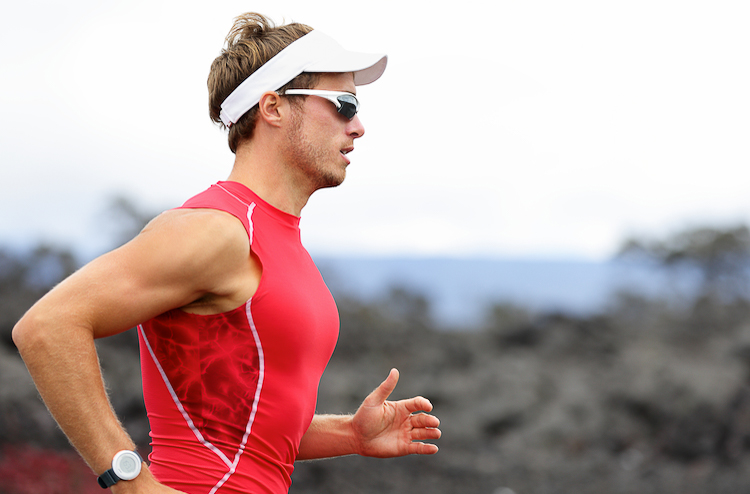 Endurance sports require the body to perform for extended and continuous periods at a specified workload. In a recent study, the effects of glycerol ingestion on hydration and successive cycle ergometer submaximal load exercise was observed in 11 well-conditioned adults between the ages of 22 and 40 years.5 Subjects ingested either glycerol solution (1.2 g/kg glycerol in 26 mL/kg solution) or placebo before exercise. Consumption of glycerol resulted in 24 percent prolonged endurance time of exercise versus those who took the placebo. Subjects who consumed glycerol lasted 94 +/- 14 minutes, compared to 77 +/- 9 minutes for those who consumed placebo. In addition, mean heart rate lowered with glycerol ingestion by 2.8 to 4.4 beats per minute. Therefore, glycerol supplementation was found to extend exercise endurance performance and lower heart rate.
Endurance sports require the body to perform for extended and continuous periods at a specified workload. In a recent study, the effects of glycerol ingestion on hydration and successive cycle ergometer submaximal load exercise was observed in 11 well-conditioned adults between the ages of 22 and 40 years.5 Subjects ingested either glycerol solution (1.2 g/kg glycerol in 26 mL/kg solution) or placebo before exercise. Consumption of glycerol resulted in 24 percent prolonged endurance time of exercise versus those who took the placebo. Subjects who consumed glycerol lasted 94 +/- 14 minutes, compared to 77 +/- 9 minutes for those who consumed placebo. In addition, mean heart rate lowered with glycerol ingestion by 2.8 to 4.4 beats per minute. Therefore, glycerol supplementation was found to extend exercise endurance performance and lower heart rate.
Glycerol Improves Thermoregulation
 Thermoregulation is the processes that allow the body to regulate or maintain its core internal temperature known as homeostasis, through mechanisms such as blood flow and perspiration (aka “sweating” for us meatheads!). Glycerol hyperhydration has been shown to promote thermoregulation benefits by maintaining circulating fluids in the vascular space, which can promote skin blood flow and fluid loss through sweating, resulting in heat dissipation.
Thermoregulation is the processes that allow the body to regulate or maintain its core internal temperature known as homeostasis, through mechanisms such as blood flow and perspiration (aka “sweating” for us meatheads!). Glycerol hyperhydration has been shown to promote thermoregulation benefits by maintaining circulating fluids in the vascular space, which can promote skin blood flow and fluid loss through sweating, resulting in heat dissipation.
One study observed the effects of glycerol hyperhydration before exercise to delay the effects of hypohydration on exercise performance and thermoregulatory capacity.6 Hypohydration is the uncompensated loss of body water, or water deficit. The subjects performed moderate exercise on a treadmill (60 percent VO2 max) in a hot dry environment (42 oC). Glycerol plus water was given 2.5 hours prior to exercise.
Consumption of glycerol resulted in an increased urine volume of 700 millilitres prior to exercise resulting in glycerol-induced hyperhydration. Compared to a water trial that resulted in a mean sweat output of 470 millilitres. In addition, glycerol ingestion elevated sweat rate by 33 percent and lowered mean core temperature by 0.9 oC versus water trial. This shows that pre-exercise consumption of glycerol can help reduce thermal burden of moderate exercise in the heat, which is associated with an increase in sweat rates and a reduction of core temperature.
Cardiovascular Support with Glycerol
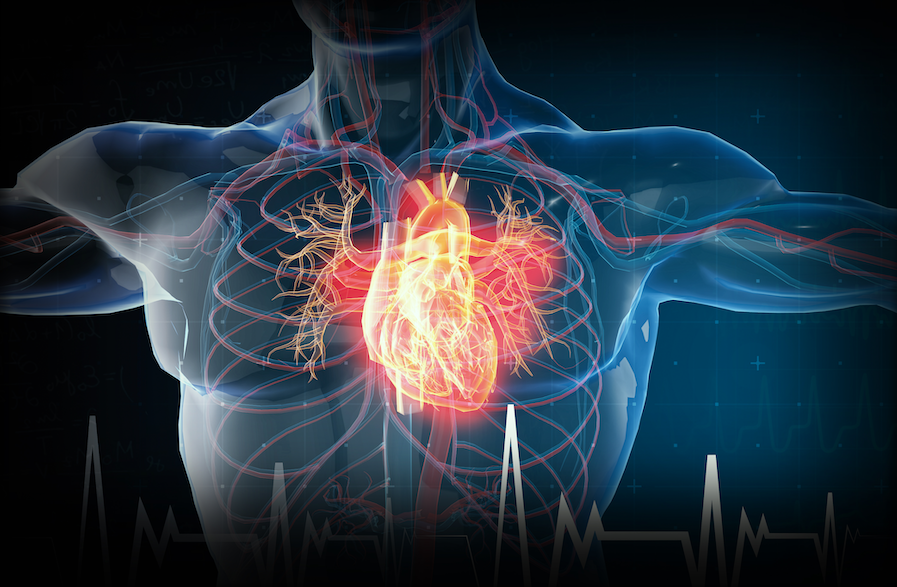 Glycerol hyperhydration has also been found to have a positive impact on the cardiovascular system by reducing heart rate, increasing stroke volume and cardiac output.7 One trial showed that 1.2 g/kg glycerol ingestion decreased urine flow and free water clearance when compared to control, resulting in an increase in body hydration.8 Additionally, glycerol ingestion during exercise increased cardiac stroke volume (163.3 +/- 27.9 versus 174.4 +/- 22.9 mL) and decreased heart rate (128.2 +/- 19.0 vs 122.0 +/- 14.5 beats/min) when compared to the control.
Glycerol hyperhydration has also been found to have a positive impact on the cardiovascular system by reducing heart rate, increasing stroke volume and cardiac output.7 One trial showed that 1.2 g/kg glycerol ingestion decreased urine flow and free water clearance when compared to control, resulting in an increase in body hydration.8 Additionally, glycerol ingestion during exercise increased cardiac stroke volume (163.3 +/- 27.9 versus 174.4 +/- 22.9 mL) and decreased heart rate (128.2 +/- 19.0 vs 122.0 +/- 14.5 beats/min) when compared to the control.
Glycerol’s Effects on Blood Water Volume
 One of the effects of glycerol is its ability to hold water in the body. Increasing total body water can help maintain exercise capacity and improve thermoregulation but can also provide that pump or “swole” feeling. Extra water in the body, particularly in the muscles, results in better nutrient delivery for working muscles. In one clinical study, the average fluid retention in the body was almost 500 millilitres.9 Other studies have found ranges of 400 to 1000 millilitres with use of glycerol supplementation. The study also showed an increase in forearm blood flow of nearly 40 percent higher toward the end of the exercise, showing greater distribution of circulating blood volume to the periphery. Basically, more volume of water in the arms and legs would therefore allow for greater muscle pumps during training! This enhanced cellular volumization also allows for a “pump” through a non-nitric oxide pathway.
One of the effects of glycerol is its ability to hold water in the body. Increasing total body water can help maintain exercise capacity and improve thermoregulation but can also provide that pump or “swole” feeling. Extra water in the body, particularly in the muscles, results in better nutrient delivery for working muscles. In one clinical study, the average fluid retention in the body was almost 500 millilitres.9 Other studies have found ranges of 400 to 1000 millilitres with use of glycerol supplementation. The study also showed an increase in forearm blood flow of nearly 40 percent higher toward the end of the exercise, showing greater distribution of circulating blood volume to the periphery. Basically, more volume of water in the arms and legs would therefore allow for greater muscle pumps during training! This enhanced cellular volumization also allows for a “pump” through a non-nitric oxide pathway.
Old-School Glycerol vs. NNB Nutrition’s HydroPrime Glycerol
 When glycerol was first introduced to the supplement industry, it was found in liquid as well as in powder and pill formats. Glycerol’s hygroscopic nature, however, wasn’t ideal when it came to formulating. Glycerol literally sucks up water from its environment, causing grittiness and clumping that will turn your pre-workout powder rock-solid if left too long. Glycerol also requires a high dose to elicit its effects. Previous product formulations formulated with super-high doses of 20 grams or more, but this caused gastrointestinal upset, diarrhea and gas. However, new chemical engineering advances discovered by NNB Nutrition have resulted in the most advanced glycerol form commercially available. The end product is called HydroPrime, and it’s going to revolutionize the way people supplement with glycerine.
When glycerol was first introduced to the supplement industry, it was found in liquid as well as in powder and pill formats. Glycerol’s hygroscopic nature, however, wasn’t ideal when it came to formulating. Glycerol literally sucks up water from its environment, causing grittiness and clumping that will turn your pre-workout powder rock-solid if left too long. Glycerol also requires a high dose to elicit its effects. Previous product formulations formulated with super-high doses of 20 grams or more, but this caused gastrointestinal upset, diarrhea and gas. However, new chemical engineering advances discovered by NNB Nutrition have resulted in the most advanced glycerol form commercially available. The end product is called HydroPrime, and it’s going to revolutionize the way people supplement with glycerine.
HydroPrime
 This advanced form of glycerol provides over 70 percent glycerol content, which is about 13 times more concentrated than the traditional glycerol monostearate format!
This advanced form of glycerol provides over 70 percent glycerol content, which is about 13 times more concentrated than the traditional glycerol monostearate format!
 This higher content of glycerol resolves the clumping problems with previous formulations. It also mixes easily, is more stable and has less grit. This also allows you to get a higher payload of glycerol in your supplements, which is what you want for maximum performance.
This higher content of glycerol resolves the clumping problems with previous formulations. It also mixes easily, is more stable and has less grit. This also allows you to get a higher payload of glycerol in your supplements, which is what you want for maximum performance.
How to Take HydroPrime Glycerol
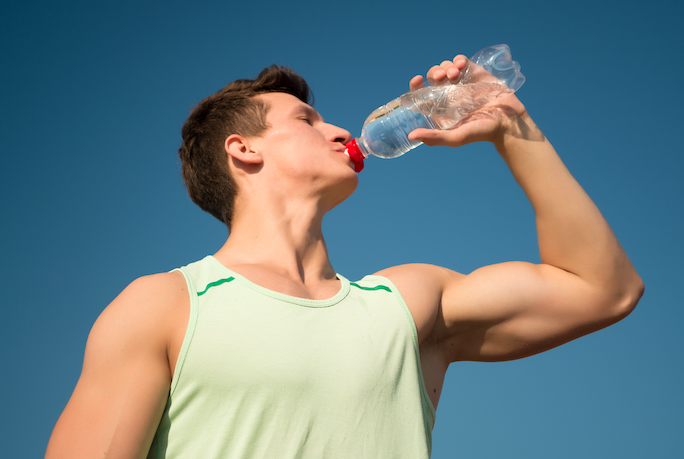 HydroPrime glycerol is best used before and/or during exercise. The amount needed will depend on the exercise performed, the temperature of the environment, metabolism and even the duration of exercise. Research on glycerol has shown that an effective dose can be anywhere between 1 g/kg and 5 g/kg taken a few times
HydroPrime glycerol is best used before and/or during exercise. The amount needed will depend on the exercise performed, the temperature of the environment, metabolism and even the duration of exercise. Research on glycerol has shown that an effective dose can be anywhere between 1 g/kg and 5 g/kg taken a few times  per day. NNB’s HydroPrime’s unique glycerol formulation allows for doses of 2 to 5 grams taken 1 to 2 times per day. For optimal results, experiment with doses in this range. Glycerol supplementation will ultimately be determined by the individual’s need. Benefits of using HydroPrime include cellular volumization, improved endurance performance, improved hydration and cardiovascular support. You can find HydroPrime in some pre-workout and intra-workout products available on the market today.
per day. NNB’s HydroPrime’s unique glycerol formulation allows for doses of 2 to 5 grams taken 1 to 2 times per day. For optimal results, experiment with doses in this range. Glycerol supplementation will ultimately be determined by the individual’s need. Benefits of using HydroPrime include cellular volumization, improved endurance performance, improved hydration and cardiovascular support. You can find HydroPrime in some pre-workout and intra-workout products available on the market today.
 For more information on HydroPrime by NNB Nutrition, visit www.nnbnutrition.com.
For more information on HydroPrime by NNB Nutrition, visit www.nnbnutrition.com.
References:
1. Patlar S, Yalcin H, Boyali E. The effect of glycerol supplements on aerobic and anaerobic performance of athletes and sedentary subjects. J Hum Kinet. 2012;34: 69-79. 2. Nelson JL, Robergs RA. Exploring the potential ergogenic effects of glycerol hyperhydration. Sports Med. 2007;37(11): 981-1000. 3. Robergs RA, Griffen SE. Glycerol. Biochemistry, pharmacokinetics and clinical and practical applications. Sports Med. 1998; 26(3): 145-67. 4. Koenigsberg PS, Martin KK, Hlava HR, et al. Sustained hyperhydration with glycerol ingestion. Life sciences. 1995;57(7): 645-653. 5. Montner P et al. Pre-exercise glycerol hydration improves cycling endurance time. Int J Sports Med. 1996;17(01): 27-33. 6. Lyons PT, et al. Effects of glycerol-induced hyperhydration prior to exercise in the heat on sweating and core temperature. Med Sci Sports Exerc. 1990; 22(4): 477-83. 7. Van Rosendal SP, Osborne MA, Fassett RG, Coombes JS. Physiological and performance effects of glycerol hyperhydration and rehydration. Nutr Rev. 2009 Dec;67(12):690-705. 8. Montner P, et al. Glycerol hyperhydration alters cardiovascular and renal function. J Exerc Physiol. 1999;2(1): 1-10. 9. McCullagh J, et al. Physiological and performance effects of glycerol hyperhydration for world championship distance duathlons in hot conditions. Int J Sport Health Sci. 2013;7(7): 351-5.
